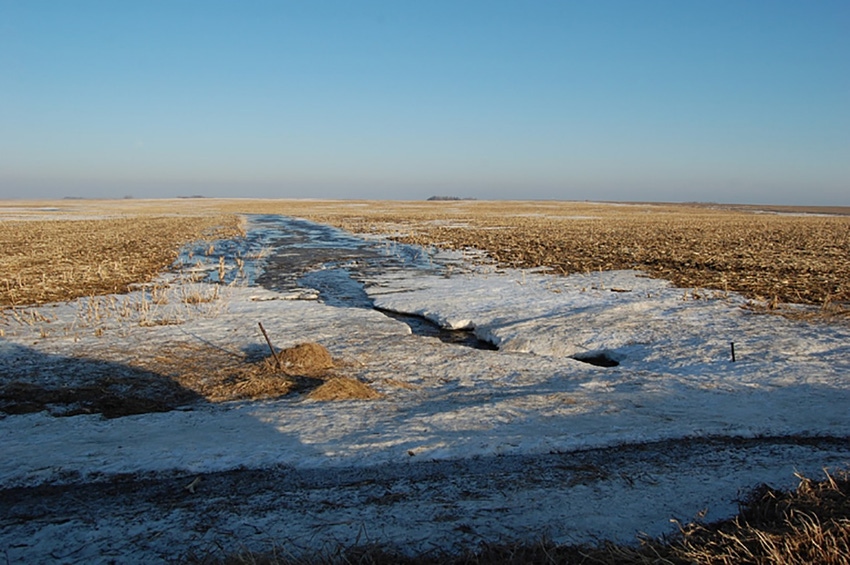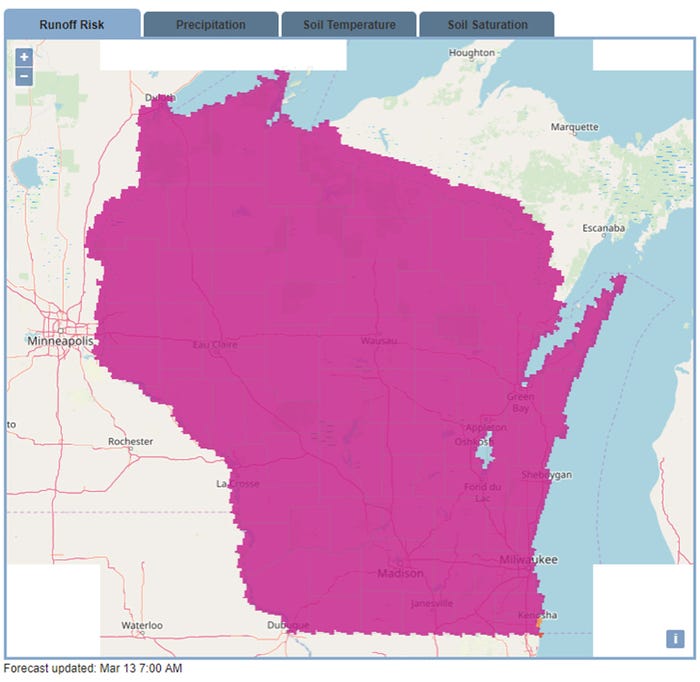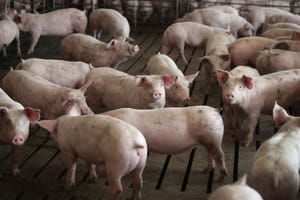Spreading manure while the risk of runoff is severe could cause manure runoff into streams, threatening water quality.
March 13, 2019

With snow melting and rain falling on frozen soil, Wisconsin’s Runoff Risk Advisory Forecast is completely pink today, meaning the risk of manure runoff is severe statewide.
The Wisconsin Department of Agriculture, Trade and Consumer Protection encourages farmers to keep this in mind as they consider emptying manure storage that may be full. Spreading manure while the risk of runoff is severe could cause manure runoff into streams, threatening water quality.
At the click of a mouse, farmers can check the Runoff Risk Advisory Forecast, available online, for the latest information on spreading risks. The runoff forecast provides maps showing short-term runoff risk for daily application planning, taking into account soil saturation and temperature, weather forecast, snow and crop cover, and slope. It is updated three times daily by the National Weather Service.

“It’s always a bad idea to spread manure during high-risk runoff times, and we strongly advise against it,” says Richard Castelnuovo, chief of resource management with the Wisconsin DATCP. Farmers should contact their crop consultants, county land conservation offices or the Department of Natural Resources for help identifying alternatives to high-risk spreading, such as stacking manure away from lakes or rivers, drinking water wells or areas with sinkholes or exposed bedrock. If farmers must spread manure, crop consultants and county conservationists can help identify fields where the risk is lower. You can find contact information for county conservation offices in the WI Land + Water Directory.
Farmers should always have an emergency plan in place in case of manure spills or runoff. The plan should include who to call and what steps to take if runoff or a spill occurs, how to clean it up and, perhaps most important, how to prevent it from happening. Click here for information about preventing and planning for manure spills.
Source: Wisconsin Department of Agriculture, Trade and Consumer Protection, which is solely responsible for the information provided, and wholly owns the information. Informa Business Media and all its subsidiaries are not responsible for any of the content contained in this information asset.
You May Also Like



